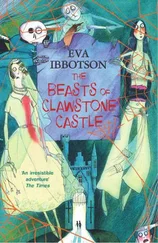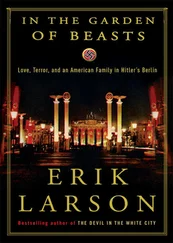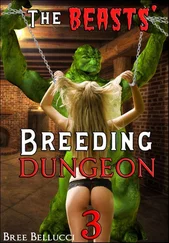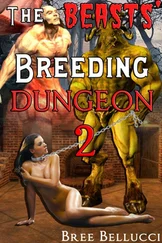Reading again the old man’s stories — for that’s what they seemed to be, despite their scientific apparatus, stories of love and death, grief and joy — what Loren felt was not the shocking sense its first readers had, that men are nothing more than beasts, their vaunted freedoms and ideals an illusion — the old, old reaction of the men who first read Darwin — but the opposite. What the stories seemed to say was that beasts are not less than men: less ingenious in expression, less complex in possibility, but as complete; as feeling; as capable of overmastering sorrow, hurt, rage, love.
The center of greylag life is the triumph ceremony, a startlingly beautiful enchainment of ritualized fighting, redirected aggression, a thousand interlocking, self-generating calls and responses. The geese perform this ceremony in pairs, bonded for life; bonded by the dance. The old man had said: the dance does not express their love; the dance is their love. When one of a pair is lost — caught in electric wires, shot, trapped — the other will search ceaselessly for it, calling in the voice a lost gosling calls its mother. Sometimes, after much time, they will bond again, begin again; sometimes never.
Mostly the pairs are male-female, but often they are male-male; in this case there is sometimes a satellite female, lover of one of the males, who will be satisfied to share their love, and can intrude herself sufficiently into their triumphs to be mounted and impregnated. This isn’t the only oddity of their bonding: there are whole novels among them of attempted bondings, flawed affairs, losses, rivalries, heartbreaks.
Loren had seen much of this among his geese, though their social life seemed frozen at an earlier, less complex state; their ceremonies were less expressive; their emotions, therefore — from the observer’s point of view — were less extensive. He had carefully noted and analyzed ritual behavior, knew his flock well, and had seen them court, raise young, meet threats, in a kind of stable, unexciting village life. Whether beneath the squabbles and satisfactions of daily life a richer current ran — as it does in every village — didn’t interest him as a scientist. Unexpressed needs and feelings were either unfelt or unformed; they couldn’t be analyzed.
Yet he wanted them to tell him more. Was Anser more human than Branta , or had the old man’s stories been only parables in the end, like Aesop’s?
He had told of two males, both at the top of the flock hierarchy, who had bonded, who danced only for each other. The proudest, the strongest, they had no rivals, no outsiders from whom to protect each other; few came near them. Their ceremony — change and change again — became more and more intense; they did it for hours. At last the weight of emotion that the ceremony carried became too great; the aggression that it modeled and ritualized became too intense, having no other outlet, The ritual broke into real, unmediated aggression; the birds bit and beat at each other with strong wings, inflicting real wounds.
The bond was broken. Immediately after, the two birds parted — went to opposite sides of the pond, avoided each other. Never performed for each other again. Once, when by error they encountered each other face to face in the middle of the pond, each immediately turned away, grooming excitedly, bill-shaking, in a state the old man said could only be described as intense embarrassment.
“Could only be described,” Loren said aloud to the frosty night, “as intense embarrassment.” The mule jogged, Loren swayed drunkenly. “ Intense. Embarrassment .”
How could he see Sten again? If they met, wouldn’t there be between them an embarrassment that would make any communication impossible? Seeing him again, having him before his eyes again, had been Loren’s obsession for months; but now that he had been invited to it, for real, he could only imagine that he would be full of shame and hurt and embarrassment. Better to let the enormous engine of his love, disengaged from its object, grind and spin on uselessly within him till it finally ran out of fuel or fell to pieces, to silence.
Yet Sten had sent for him, He groaned aloud at the stars. Far down within him he seemed to see — whiskey, only whiskey, he told himself — a possibility he had long discounted, a possibility for happiness after pain.
The next morning, to cleanse himself of shame and hope and the sour humors of the whiskey, he plunged naked up to his neck in the icy river, shouting, trying to shout out all the impurity he felt within; he splashed his face, rubbed his neck, waded onto the shore, and stood shivering fiercely. By an act of will he ceased shivering. There wasn’t any weakness, any impatience, any badness in him that he couldn’t, by a similar act of will, overcome.
Quieter then, he dressed, slipped the canoe, and started upriver. The river was low and slow; leaves floated on it, fell continuously on it, clogged its tributaries. Dense clouds were pillowed at the horizon, and overhead a high, fast wind, so high it couldn’t be felt below, marked the October blue with chalk marks of cloud, Summer was long over here. Last night’s frost had been hard,
During that week, his geese were restless, rising up in a body, circling for a time, realighting excited and nervous. It was as though his peaceful village had been swept by a bizarre religious mania, Old quarrels were forgotten. Nest sites were left unguarded. They were aligning themselves, making a flying force, The time had come for their migration. On Monday — the day that he would have gone into town — he awoke before dawn, and had barely time to dress before he saw that this would be the day of their leaving.
Loren had identified the commodore and his lieutenants (they were called that in his notes, though they would not be in his final paper) and noted their strategy meetings and route conferences. Now in the dawn the hair stood on Loren’s neck: was it because, over the months, he had become almost one of them that he knew with such certainty that this was the day — had it been communicated to him as it had been to each of them, did his certainty add to the growing mass of their certainty, inciting them to fly?
All that morning he photographed and noted, ill almost with excitement, as they knitted their impulses together. Again and again small groups pounded into the air, circled, alighted, reascended. About noon the commodore and some of the ranking members of his staff, male and female, arose, honking, and sailed off purposefully, making a tentative, ragged V: maneuvers. They didn’t return; with his glasses, Loren scanned from the crook of a tall tree, and saw them waiting in a water-meadow somewhat northeast. The rest still honked and argued, getting up nerve. Then the commodore and his staff flew back, sailing low and compellingly over the flock, going due south; and in a body the others were drawn after them, rising in a multiple fan of black and brown wings, attaching themselves.
For as long as he could, Loren followed them with the glasses, watched their V form neatly against the hard blue sky marked with wind. They were wind. They were gone.
Alone again, Loren sat in the crook of the tree. Their wings’ thunder and their cries had left a new void of silence. Winter seemed suddenly palpable, as though it walked the land, breathing coldly. He remembered winter.
After Sten and Mika had gone out of sight, he had spent that day searching for Hawk on snowshoes, with lure and net and pole; walked himself to exhaustion through the woods, purposelessly, having no idea where Hawk might go and seeing no trace of him, If he had found a dead bird, if he had seen blood on the snow, he would have gone on, not eating, not sleeping; but he saw nothing. Night was full when he came back to the empty house, almost unable to stand; the pain, though, had been driven almost wholly to his legs and feet, where he could bear it.
Читать дальше












